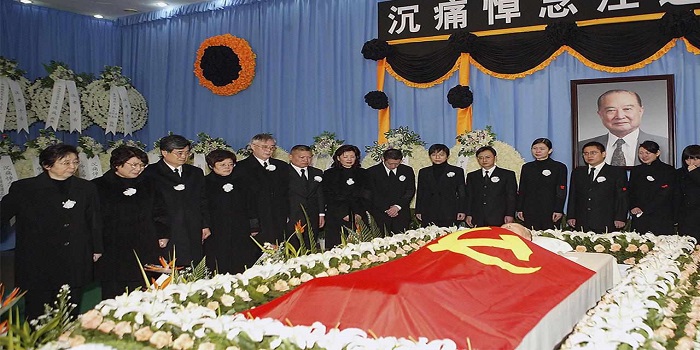
Undoubtedly, planning a funeral is challenging, especially when unfamiliar with the customs and traditions observed during such events. For those responsible for organising a Chinese funeral in Malaysia, adhering to all cultural practices by meticulously managing every detail is crucial. Below is a comprehensive guide on how to provide a proper farewell. Each section thoroughly explains the necessary steps. By following this guide, you can ensure that funeral arrangements honour traditional practices while still accommodating the family’s wishes.
The Basics of a Chinese Funeral
It is essential to know the basics of a Chinese funeral before actually going into the planning.
Key Elements:
- Purpose: Basically, it aims at revering and showing respect to the dead and making sure their transition to the afterlife is smooth and trouble-free.
- Customs: Chinese funerals are imbued with various rituals that would accord solace to the bereaved while providing a safe passage to the spirit of the deceased.
These elements set the basis for planning and also help to make decisions regarding the arrangements.
Planning the Nirvana Service Package
The right package can make things very much easier. Nirvana offers various comprehensive service packages to cater to the different needs of families.
Steps to Arrange:
- Research Options: Research available packages that Nirvana offers in Malaysia. These numerous packages can include the basic needs for transportation, ceremonial items, and staff to help.
- Consult a Representative: Consult with a representative at Nirvana to discuss your needs. They can explain precisely what each package delivers so that you get one that best fits your needs.
- Compare Nirvana Packages: Go through the different packages available in Nirvana and make an informed decision based on your family’s preferences and budget. These packages might differ in terms of services delivered and costs incurred.
When you select a Nirvana service package, you will have to ensure that much of the planning processes are hastened and coordinated duly so all the traditional requirements are met.
Preparing for the Rituals
In a Chinese funeral, traditional rituals should be held. Traditional rituals should be carried out in the right manner; otherwise, they will dishonour the dead and also offend the spirits.
Rituals Include:
- Offering Joss Paper: The burning of joss paper is performed to offer the deceased the things that he will need in the afterlife.
- Crying and Wailing: Family members of the dead usually cry or wail to supposedly help their spirit cross into the other world.
- Food Offerings: Prepare and offer some food, such as fruits or pastries, to the dead. They are placed at an altar or gravesite.
Implementation:
- Hire a Ritual Specialist: Consider hiring a professional who will ensure all rituals are done right.
- Coordinate with Family: Meet with the family and plan out all the rituals so that nobody would be uncomfortable with what’s going to happen.
Knowing and planning for these rites makes the funeral service proceed in a culturally correct manner and provides solace to the family.
Planning the Funeral Service
The funeral service is a crucial part of the ceremony, and it is when the family and friends get together to pay respect to the individual’s memory and bid farewell.
Significant Decisions:
- Place of Service: Decide upon the place of service, which could be a funeral home or a space specifically allocated for ceremonies like these within the temple.
- Date and Time: The timing of the service should allow for maximum attendance by family and be consistent with tradition.
- Invitations: Address and mail or email invitations to family and friends. Include in the invitation the date, time, and location of the service as well as dress code and any rituals that guests should be aware of.
Preparation Tips:
- Coordinate with Service Providers: Confirm logistics with service providers, including an adequate number of chairs and audio-visual equipment.
- Plan the Order of Service: Note down what will happen and in what order, including readings, eulogies, and any other ritual actions.
Effective management of the funeral service allows proceedings to move seamlessly and with dignity in a manner befitting the deceased.
Arranging the Burial or Cremation
One of the significant decisions when planning a Chinese funeral is whether to bury or cremate the body. Each has its traditions and details that must be kept in mind.
Burial:
- Cemetery Selection: Select a suitable cemetery in accordance with family customs and traditional needs.
- Grave Preparations: Arrange for the grave preparation to ensure that the grave is well prepared for the burial process.
Cremation:
- Select Crematorium: Choose a crematorium that is reputable and make arrangements for the cremation details.
- Ceremonies: Incorporate within the cremation process the traditional rituals involved in this method of funeral rites, by offering joss paper and other items that signify other items.
Other Tips:
- Consulting with Experts: Talk about the practicalities of burial or cremation with funeral arrangers or specialists.
- Appreciation for Cultural Standards: Use cultural principles in addressing either option.
Amongst meticulous planning, such burial and cremation procedures are performed respectfully, by the standards of culture.
Arrangements after the Funeral
There are still more arrangements after the funeral ceremony to complete it all.
Post-Funeral Arrangements:
- Condolence Letters: Prepare letters of condolence for all visitors who supported the family through the funeral.
- Memorial Services: Prepare any memorial services or gatherings to further enhance the character that has been taken.
- Grief Support: Provide any resources and support group availability for the family if required to deal with their loss.
Other Details:
- Check all of the Nirvana service packages are in order; check also any of the last-minute arrangements.
- Check on outstanding financial matters pertaining to the expenses of the funeral.
All these works post-funeral provide closure to the incident and simultaneously make one thank all those who were present during the period of loss.
Conclusion
Planning a Chinese funeral in Malaysia involves awareness of the cultural practices, arrangement of services, and management of different aspects of the ceremony. By closely following these steps with the aid of resources like the Nirvana service package, you can hold a more respectful and organised funeral. Not only does this procedure show respect to the deceased, but it also makes it easier for the relatives of the deceased to pass through this period of grief.
This guide provides a clear and practical step-by-step procedure to plan a Chinese funeral, making it easy to navigate through its complexities while showing respect.




